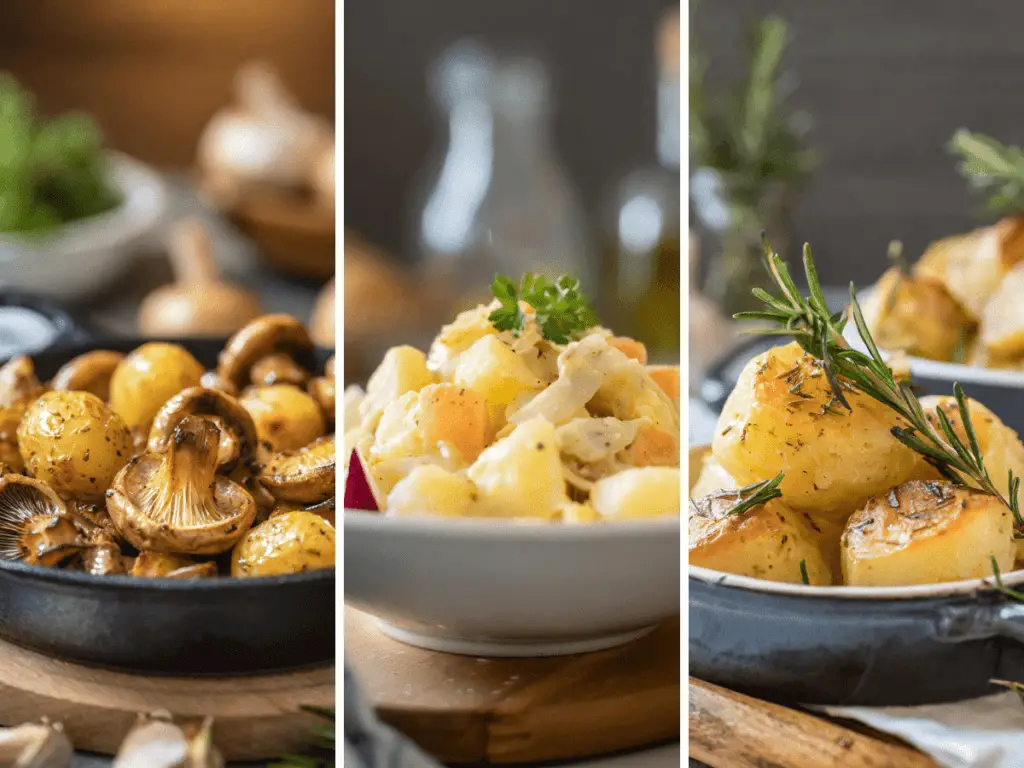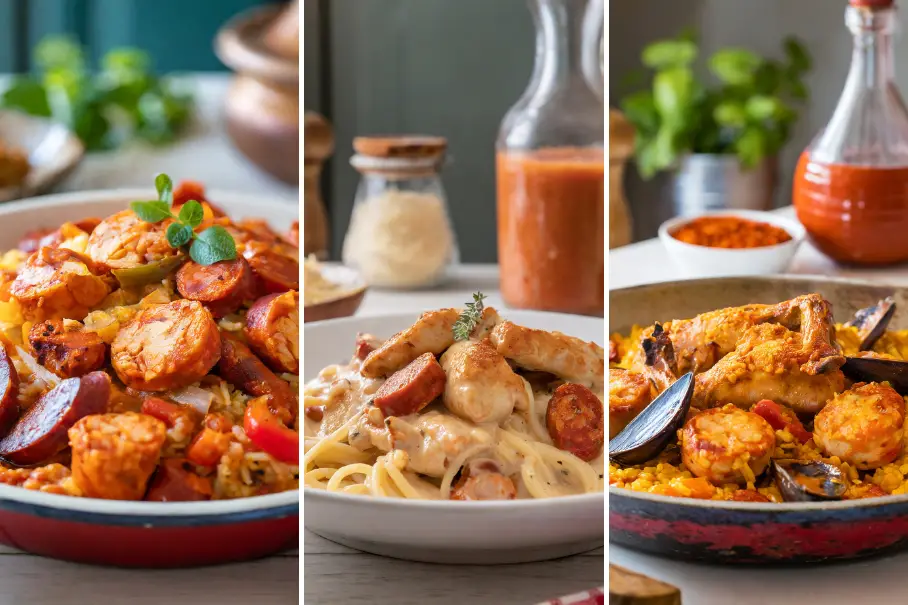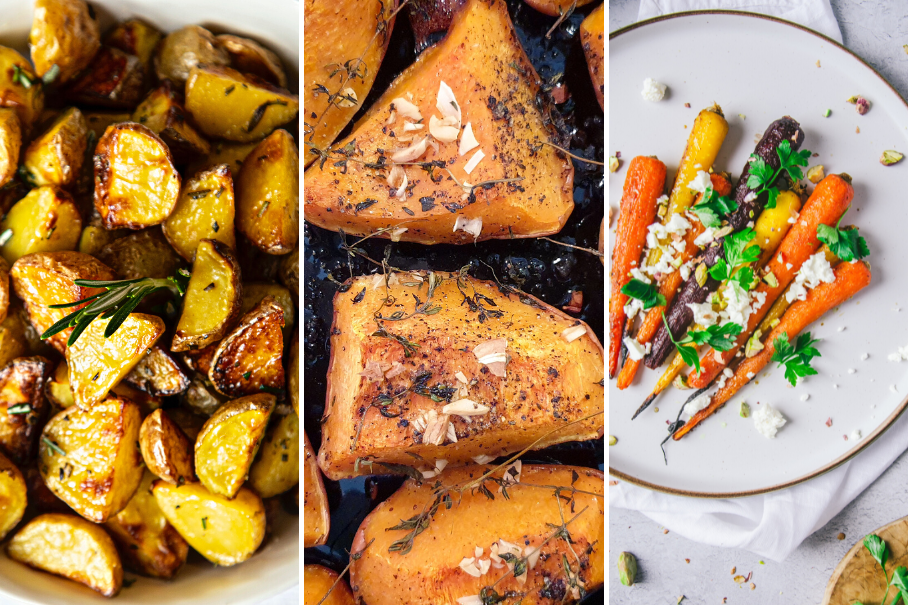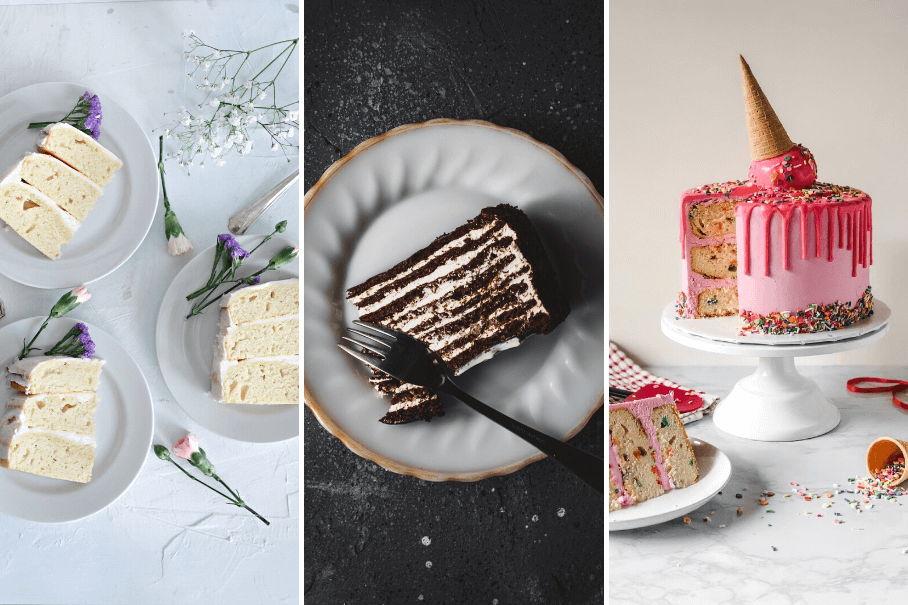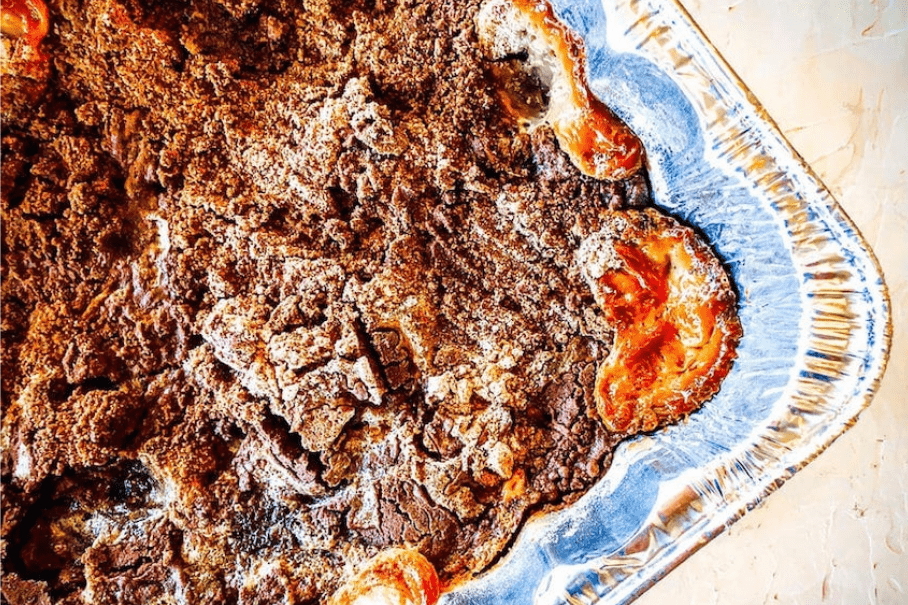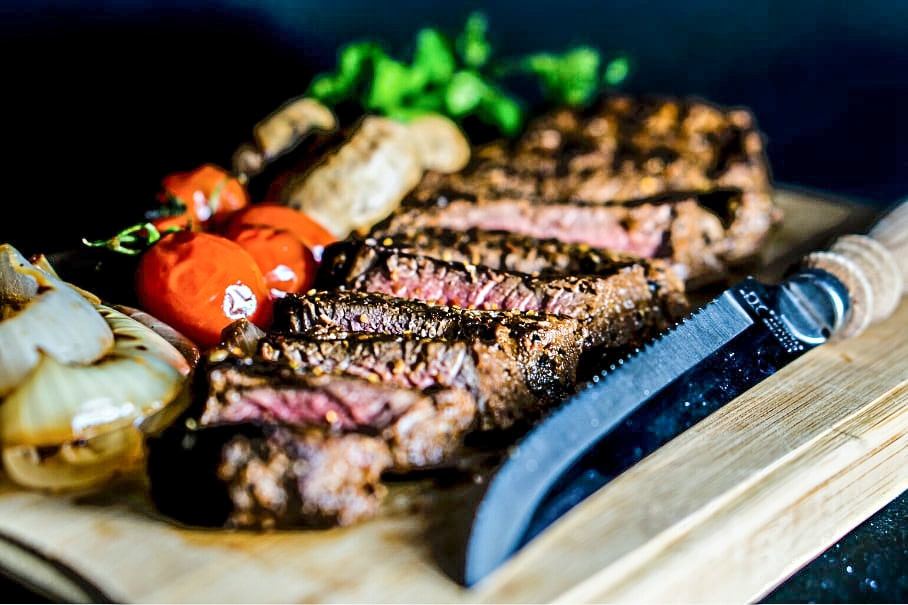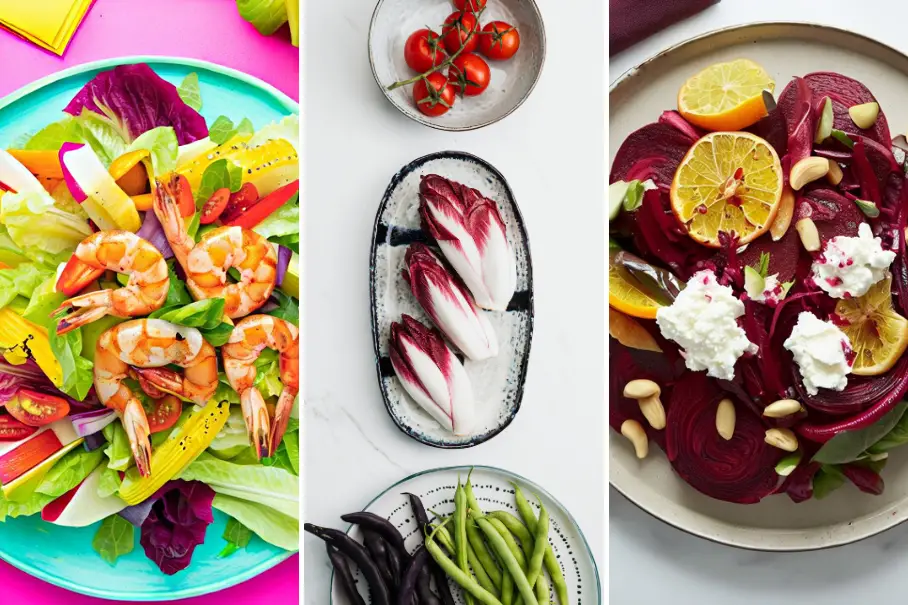Upgrade your spud game! Discover 10 delicious & easy baby potato recipes – roasted, smashed, boiled & more! Perfect for sides or snacks.
This post may contain affiliate links. Please check our disclosure policy.
Spicy Bombay Potatoes (Instant Pot): This easy and flavorful dish features potatoes cooked in a fragrant blend of spices, tomatoes, and onions. It’s vegan, gluten-free, and ready in under 30 minutes using an Instant Pot. Serve it as a side dish or a main course with some rice or bread.
Crispy Smashed Potatoes: These potatoes are boiled until tender, then smashed and roasted until crispy and golden. They’re seasoned with salt, pepper, and garlic powder, and topped with fresh parsley and parmesan cheese. They make a perfect accompaniment to any meal, or a satisfying snack on their own.
Garlic Mushroom and Baby Potatoes: This hearty and comforting dish combines baby potatoes and mushrooms sautéed in butter, garlic, and thyme. It’s creamy, savory, and satisfying. You can serve it as a side dish or a main course, or add some cheese, bacon, or cream for extra richness.
Foil Pack Potatoes: These foil pack potatoes are a great way to cook potatoes on the grill, in the oven, or over a campfire. They’re seasoned with butter, garlic, onion, and herbs, and wrapped in foil packets. They come out tender, moist, and flavorful, with no mess or cleanup.
Air Fryer Potatoes: These air fryer potatoes are crispy on the outside and fluffy on the inside, with minimal oil and maximum flavor. They’re seasoned with paprika, garlic, onion, and parsley, and cooked in an air fryer in just 20 minutes. They’re a healthier and easier alternative to deep-fried potatoes.
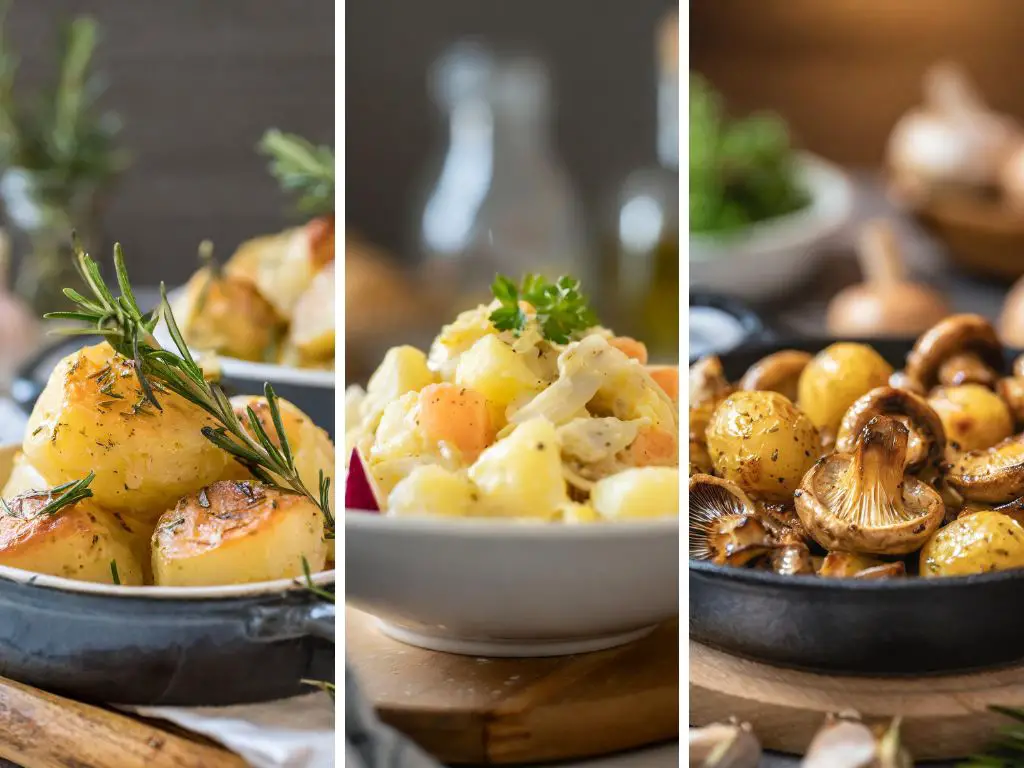
Baby Potato Recipes
Ingredients
- Spicy Bombay Potatoes
- Ultra Crispy Smashed Potatoes
- Roasted Baby Potatoes with Rosemary and Garlic
- Pan Roasted Garlic Mushroom and Baby Potatoes
- Foil Pack Potatoes
- Air Fryer Potatoes Recipe
- Garlic Rosemary Fondant Potatoes
- Boiled Baby Potatoes with Lemon & Browned Butter
- Baby Potatoes with Butter & Herbs
- Homemade Potato Salad
Instructions
- Select your favorite baby potatoes recipe.
- Gather the necessary ingredients.
- Get ready to enjoy a flavorful and filling dish featuring baby potatoes!
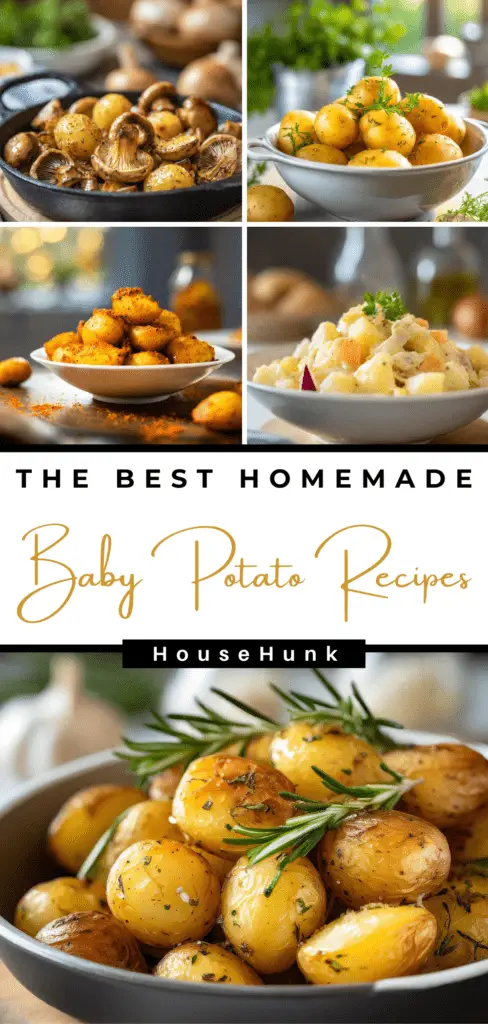
Is it necessary to boil potatoes before roasting?
No, it is not necessary to boil potatoes before roasting them. You can roast baby potatoes directly in the oven, as long as you cut them into even-sized pieces and coat them with some oil and seasonings. However, some people prefer to parboil their potatoes for a few minutes before roasting, as this can help them cook faster and more evenly, and achieve a crispier exterior and a creamier interior. Parboiling also removes some of the starch from the potatoes, which can prevent them from sticking to the pan or becoming gluey.
Do you need to poke holes in baby potatoes?
No, you do not need to poke holes in baby potatoes before roasting them. Unlike larger potatoes, baby potatoes have thin skins and a high moisture content, which means they are unlikely to explode or burst in the oven. However, if you want to infuse some flavor into your potatoes, you can make some small slits or cuts on their surface and insert some garlic cloves, herbs, or butter.
Why do baby potatoes take so long to cook?
Baby potatoes take longer to cook than regular potatoes because they have a higher density and a lower surface area-to-volume ratio. This means they retain more heat and moisture inside, and take more time to become tender and cooked through. The cooking time of baby potatoes also depends on their size, shape, and variety. Generally, smaller, rounder, and waxy potatoes cook faster than larger, irregular, and starchy potatoes.
What happens if you don’t soak potatoes before roasting?
Soaking potatoes before roasting is a common technique that can improve the texture and flavor of your roasted potatoes. Soaking removes some of the excess starch from the potatoes, which can make them crispier on the outside and fluffier on the inside. It also rinses off any dirt or impurities from the potatoes, which can affect the taste and appearance of your dish. However, if you don’t soak your potatoes before roasting, you can still achieve good results by following these tips:
- Choose baby potatoes that are fresh, firm, and free of bruises or sprouts.
- Wash and scrub your potatoes well under running water to remove any dirt or debris.
- Cut your potatoes into uniform pieces to ensure even cooking.
- Dry your potatoes thoroughly with a paper towel or a clean cloth to remove any excess moisture.
- Toss your potatoes with some oil and seasonings to coat them well and add flavor.
- Spread your potatoes in a single layer on a baking sheet and leave some space between them to allow air circulation and prevent steaming.
- Roast your potatoes in a preheated oven at a high temperature (around 400°F) for 20 to 30 minutes, flipping them halfway through, until they are golden and crisp.
Why are my potatoes not getting crispy in the oven?
There are several reasons why your potatoes may not get crispy in the oven, such as:
- Your potatoes are too wet. Excess moisture can prevent your potatoes from browning and crisping up. To avoid this, make sure you dry your potatoes well after washing, soaking, or parboiling them. You can also sprinkle some cornstarch or flour over your potatoes to absorb some of the moisture and create a crunchy coating.
- Your potatoes are too crowded. Overlapping or overcrowding your potatoes on the baking sheet can cause them to steam instead of roast, resulting in soggy and soft potatoes. To avoid this, use a large baking sheet and spread your potatoes in a single layer with some space between them. You may need to use two baking sheets or roast your potatoes in batches if you have a lot of potatoes.
- Your oven temperature is too low. A low oven temperature can slow down the browning and crisping process of your potatoes, and make them dry and tough. To avoid this, preheat your oven to a high temperature (around 400°F) and roast your potatoes for a shorter time, checking them for doneness and crispiness every 10 minutes.
- Your oil or seasonings are too heavy. Too much oil or seasonings can weigh down your potatoes and make them greasy and soggy. To avoid this, use a light and neutral oil, such as olive oil or canola oil, and use just enough to coat your potatoes well. You can also use a cooking spray to lightly grease your baking sheet and prevent your potatoes from sticking. For seasonings, use salt, pepper, and your favorite herbs and spices, but avoid adding too much sugar, cheese, or sauces, as they can burn and ruin your potatoes.
Can you overcook baby potatoes?
Yes, you can overcook baby potatoes if you leave them in the oven for too long or at too high a temperature. Overcooked potatoes can become dry, mushy, or burnt, and lose their flavor and texture. To prevent overcooking your baby potatoes, follow these tips:
- Use a timer and check your potatoes frequently for doneness and crispiness. Depending on the size and variety of your potatoes, they may take anywhere from 15 to 45 minutes to roast in the oven.
- Use a fork or a knife to test the tenderness of your potatoes. Your potatoes are done when they are easily pierced with a fork or a knife, but still hold their shape and have some resistance.
- Use an oven thermometer to ensure your oven temperature is accurate and consistent. If your oven temperature is too high or too low, it can affect the cooking time and result of your potatoes.
- Use a wire rack to cool your potatoes slightly after taking them out of the oven. This can help them retain their crispiness and prevent them from becoming soggy or steaming in their own heat.
Do you wash baby potatoes before boiling?
Yes, you should wash baby potatoes before boiling them to remove any dirt, debris, or pesticides from their skin. Baby potatoes have thin and delicate skins that are usually edible and nutritious, so you don’t need to peel them before boiling. However, you should wash them well under running water and scrub them gently with a vegetable brush or a clean cloth to make sure they are clean and safe to eat. You can also cut off any eyes, sprouts, or bruises from your potatoes if you see any.
Do you peel baby potatoes before boiling?
No, you do not need to peel baby potatoes before boiling them, unless you prefer to do so or your recipe calls for it. Baby potatoes have thin and tender skins that are usually edible and add flavor and texture to your dish. They also contain some nutrients, such as fiber, vitamin C, and potassium, that are beneficial for your health. However, if you want to peel your baby potatoes before boiling, you can do so by following these steps:
- Wash and dry your baby potatoes well.
- Use a sharp knife or a vegetable peeler to peel off the skin from your potatoes. You can also use your fingers to rub off the skin if it is very loose and thin.
- Cut your potatoes into uniform pieces if needed.
- Place your peeled potatoes in a pot of cold water to prevent them from browning and drying out until you are ready to boil them.
How do you know when small potatoes are done?
There are a few ways to tell when small potatoes are done, such as:
- Using a fork or a knife. The easiest and most reliable way to check the doneness of your small potatoes is to insert a fork or a knife into the center of a potato. If it goes in easily and comes out without resistance, your potatoes are done. If it meets some resistance or feels hard, your potatoes need more time to cook.
- Using a thermometer. Another way to check the doneness of your small potatoes is to use a digital thermometer to measure the internal temperature of a potato. Your potatoes are done when they reach around 210°F, which is the temperature at which starches gelatinize and become soft and tender.
- Using your eyes and nose. You can also use your senses of sight and smell to tell when your small potatoes are done. Your potatoes are done when they are slightly wrinkled and have a golden or brown color on the outside. They should also smell fragrant and nutty, and not burnt or bitter.
